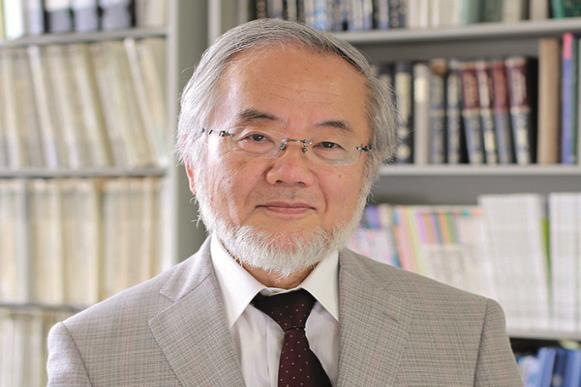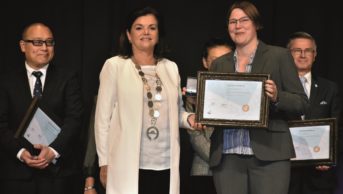
平成27年度 文化功労者:文部科学省 / Wikimedia Commons
Cell biologist Yoshinori Ohsumi has won the 2016 Nobel Prize in Physiology or Medicine for his discoveries relating to the mechanisms for autophagy.
According to the Nobel Assembly at Karolinska Institutet in Sweden, which announced the award on 3 October 2016, Ohsumi’s work has led to a new understanding of how the cell recycles its content.
Ohsumi’s discoveries, which include a series of experiments in the early 1990s that considered how the body’s cells detoxify and repair themselves, “opened the path to understanding the fundamental importance of autophagy in many physiological processes, such as in the adaptation to starvation or response to infection”, the assembly said in an official statement.
“Thanks to Ohsumi and others following in his footsteps, we now know that autophagy controls important physiological functions where cellular components need to be degraded and recycled,” it added.
Disrupted autophagy has been linked to Parkinson’s disease, type 2 diabetes and other disorders that affect older people. Research is ongoing to develop drugs that can target autophagy in various diseases, according to the statement.
Ohsumi, aged 71 years, has achieved a string of national and international awards during his career. He was made an honorary professor at the Institute of Innovative Research at the Tokyo Institute of Technology in 2014.


